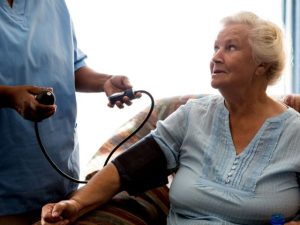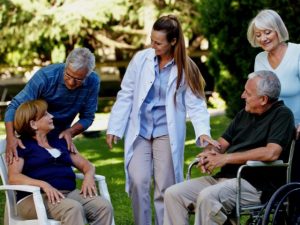Depression in elderly populations is quite common and especially for those who require more advanced care living in nursing homes or other assisted living facilities.
As a result of losing more of their independence they can feel they no longer have much to offer and being a long-term care nurse, I have had elderly residents tell me they feel like a burden to their loved ones and other care givers.
It is important when providing nursing care to the elderly population that we are mindful of the signs and symptoms of a depressed resident and ensure we provide the proper interventions to help them.
Some signs an elderly resident may be depressed are loss of appetite, sleep issues, loss of interest in activities they usually enjoy, irritability, and isolation. A depressed resident may exhibit only a few of these signs or all the above. There are a variety of nursing interventions that can be used when caring for depressed residents.








